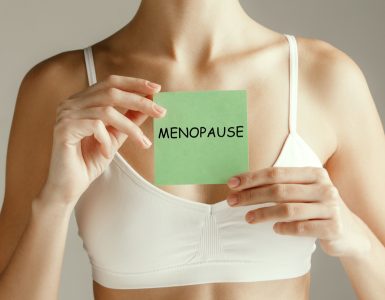The Pioneer recently reported how globally, the average age for the onset of menopause is 51
However, because of factors such as genetics, stress, bad lifestyle choices, illness and medical procedures, some women go through menopause before the age of 40 and this is called premature menopause.
Both premature ovarian failure (POF) and premature menopause refer to the fact that the ovaries have ceased to function as they should by not releasing eggs during a woman’s monthly cycle or not producing enough oestrogen. In the case of premature ovarian failure periods will be irregular and during premature menopause they will stop altogether.
Women usually start going through menopause between the ages of 45 to 55. A survey conducted by the Institute for Social and Economic Change (SEC) found that 4% of Indian women were already going through the menopause between the ages of 29 to 34 and a further 8% were menopausal between the ages of 35 and 39.
Causes (Medical Treatments)
- Chemotherapy and pelvic radiation therapy can damage the ovaries
- Surgical removal of the ovaries which cause your periods to stop immediately
- Surgical removal of the uterus which leaves the ovaries in place can lead to premature menopause
- Tube tying
Other Causes
- Genetics – premature menopause runs in the family
- Chromosome defects e.g. Turner’s syndrome
- Autoimmune diseases, such as lupus, hypothyroidism and Grave’s disease
- Unhealthy lifestyle – smoking, alcohol and drugs
- Malnutrition
- Stress
Symptoms of Premature Menopause
The symptoms of premature menopause are the same as natural menopause and include the following:
- Heavier or lighter periods
- Irregular or missed periods
- Hot flashes and night sweats
- Vaginal dryness
- Mood changes and depression
- Tearfulness
- Insomnia – hot flashes and night sweats don’t help this
- Problems with memory and concentration
- Decreased sex drive
- Dry mouth, eyes and skin
- Possible loss of bladder control and/or irritability
If you are experiencing some of the above symptoms, it would wise to go to a fertility clinic and ask to be tested for premature menopause or POF. A simple blood test will measure oestrogen levels and related hormones such FSH (follicle stimulating hormone). These are tests will also tell you if you are still able to conceive.
Treatment
Firstly, check your family history. If your mother or grandmother went through premature menopause, then it is highly possible that you will too. It’s important to plan ahead if you want to have children.
Women who haven’t had children but would like to are still able to carry a baby during this time although they will need to find an egg donor. For more information on this visit here
Try the following to relieve the symptoms of premature menopause:
- Follow a healthy diet
- Exercise regularly – both aerobic exercise such as running and meditative and stretching exercise like yoga
- Take time out for relaxation
- Eat foods which are rich in phytoestrogens such as soy
- Eat calcium rich food to prevent osteoporosis
- Take a good multivitamin each day
















